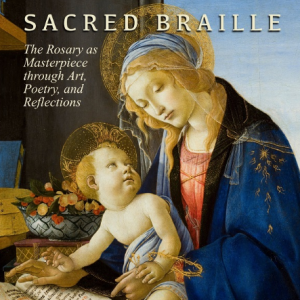The Connection Between Compassion And Happiness
In the news recently is the “world’s happiest man,” Matthieu Ricard, a Buddhist monk and close confidant of the Dalai Lama, whose brain was studied by scientists and was found to have the highest recorded propensity for joy. The monk, when asked his secret, has shared that he was meditating on compassion when his brain was studied, and it is that meditation upon what he terms “enlightened altruism” that is the force behind his happiness.
How often do we as a society worship egotistical pleasures, only to find a false and hollow reward? What can Buddhism teach us about happiness? Meditate on compassion, Ricard answers.
“Meditation engages thought, imagination, emotion, and desire. This mobilization of faculties is necessary in order to deepen our convictions of faith, prompt the conversion of our heart, and strengthen our will to follow Christ,” the Catholic Catechism teaches. Prayer such as lectio divina (meditating on Scripture) or the devotion of the rosary are uniquely Christian ways of meditation.
However you look at it, meditation clears the mind of egotistical noise and vacuous worldly concerns. It is a discipline that inspires “other”-directed thinking. But what to meditate on? Compassion, of course. Consider the eight Beatitudes from the Gospel of Matthew:
Blessed are the poor in spirit,
for theirs is the kingdom of heaven.
Blessed are they who mourn,
for they shall be comforted.
Blessed are the meek,
for they shall inherit the earth.
Blessed are they who hunger and thirst for righteousness,
for they shall be satisfied.
Blessed are the merciful,
for they shall obtain mercy.
Blessed are the pure of heart,
for they shall see God.
Blessed are the peacemakers,
for they shall be called children of God.
Blessed are they who are persecuted for the sake of righteousness,
for theirs is the kingdom of heaven.
Just look at how selfless these are. One translation of the traditionally used word “blessed” in the Beatitudes is “happy”: “Happy is the one…” This leads to the understanding that happiness and blessedness are one and the same. Not happiness in the worldly context, mind you, but Beatitudinal Happiness, or Compassion. This is not about promotions, new cars or makeovers—yet it promises happiness.
Things that enable us to feel compassion bring us closer to the God of Love and therefore create blessed happiness. Compassion also brings us into the present moment. Think of “Beatitude” as an “Attitude of Being.”
It seems then, that across religious traditions, a mindfulness rooted in the present and charged with compassion is a recipe for happiness. This attitude of being can make our own lives happier… and the lives of others, too. Wouldn’t it be wonderful, if your brain was studied, to see happiness mapped out in matter? Turns out, the way to achieve such powerful joy for yourself is to… that’s right, feel compassion for others. Paradoxes can be wonderful.


I love the thought on compassion expressed by Miller Williams. It is so true. Compassion is hidden many times by one who has chosen to replace this virtue with vices that only take us further away from charity and helping our neighbor. St. Thomas discusses compassion as having a sense and intellective appetite. Although we as human beings have reason and intellect, the action of compassion for another is not a singular endeavor for if we have love in our heart then we share this effort with Jesus.